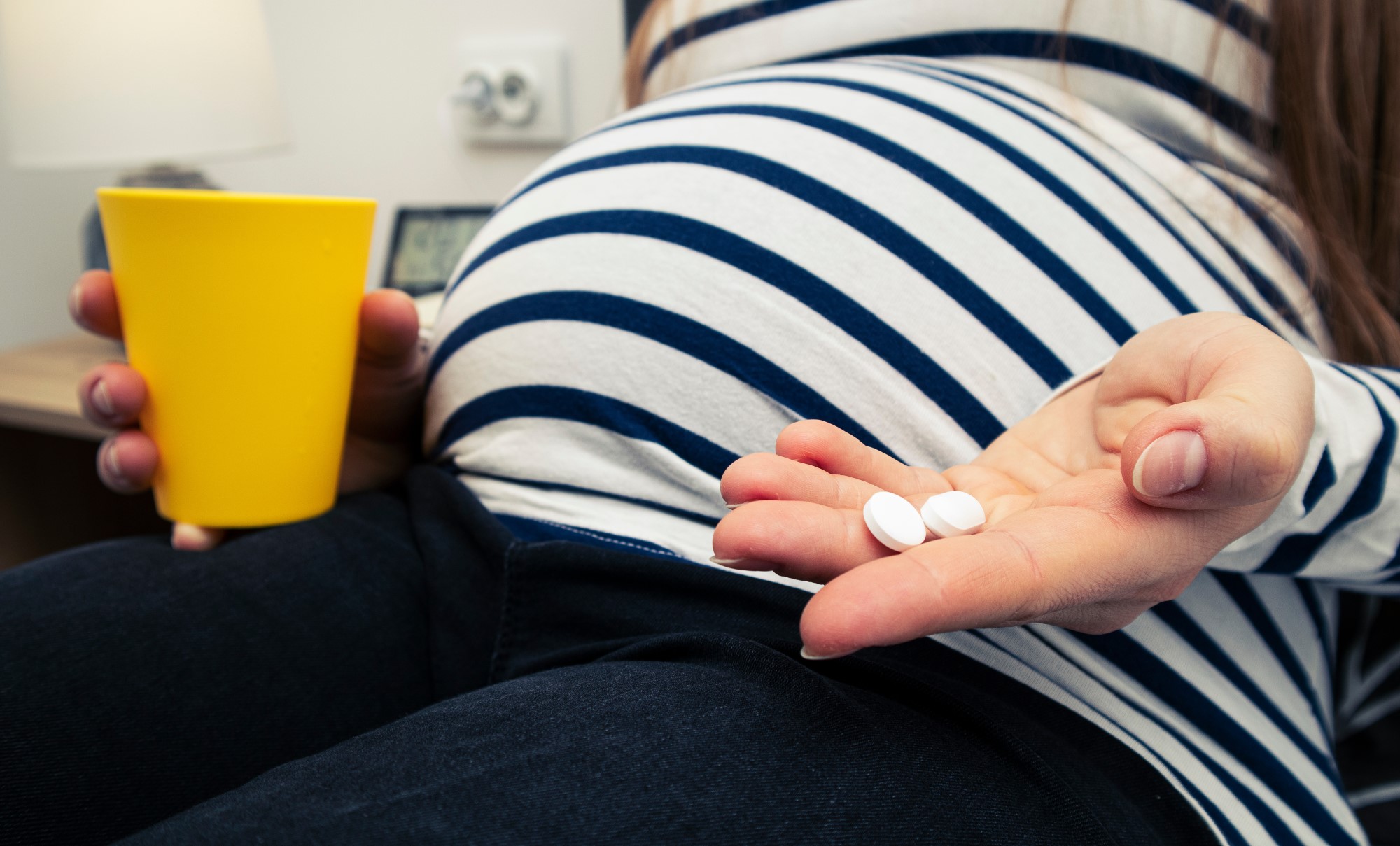Reactions to study associating paracetamol use in pregnancy with attention and sleep problems in children
A study published in the journal PLOS ONE has found an association between paracetamol consumption during pregnancy and attention and sleep problems in these children at three years of age.

(EN) Gratacós - Paracetamol
Eduard Gratacós
Director of the BCNatal maternal-fetal medicine center (Hospital Clínic-Sant Joan de Déu) and professor at the University of Barcelona.
The study is of high quality, but like most of these studies it is limited, being based on a database that, although of high quality, was not designed to accurately assess the objective of the study. For this reason, the conclusions, although valid and relevant, must be contextualized, especially in the sense that it is not possible to rule out confounding factors that may explain the observed association. A very clear example is that when the authors adjust for maternal stress some associations are lost, and this demonstrates the complexity of assessing associations between consumption in pregnancy and a subsequent outcome, which can only be established with some certainty in studies that are randomized clinical trials specifically designed to answer the research question.
The study fits with previous evidence and, therefore, it is plausible that there is a (weak) association between the use of paracetamol and (mild) neurodevelopmental alterations. It does not provide any further news beyond the fact that it is a somewhat larger study, but it is consistent with previous studies along the same lines.
The important implication is that any medication during pregnancy should be taken with a doctor's prescription. The relevance of the study being with paracetamol is that it is a drug generally considered by the general population, and by many health professionals, to be "almost" harmless. And as this study shows, this may not be the case. But it should be remembered that when indicated, paracetamol is the best analgesic and antipyretic option we have in pregnancy and, therefore, if a mother must use it under medical prescription she should be reassured that the benefits outweigh the risks. Always remembering that any medication in pregnancy should be used for the minimum essential time and never without medical indication.
But, in general, this is not alarming information, the associations are weak and the study itself shows that maternal stress is much more important than paracetamol. In short, everything that happens in pregnancy can affect fetal development and therefore the best lifestyle and emotional balance of mothers should be promoted, but without generating alarms. The effects of pregnancy can also be compensated during the first years of life and an adequate family environment, welcoming and with adequate love and attention for the child, will compensate for many effects that may have occurred during pregnancy.
Júlvez - Paracetamol
Jordi Júlvez
Group Leader at the Institute of Health Research Pere Virgili (IISPV) and Associated Researcher at the Barcelona Institute for Global Health (ISGLOBAL)
This is a well-designed prospective observational study in which they find significant but slight associations in attention and sleep problems.
It is in line with similar recent studies that may indicate that there is a causal relationship. Although longitudinal studies already assume some causality in the relationship, studies such as clinical trials are required to assume causality and effect.
Paracetamol - Gonzalo Pin
Gonzalo Pin Arboledas
Head of the Pediatrics Unit and coordinator of the Sleep Unit of Hospital Quirónsalud Valencia. Coordinator of the Sleep and Chronobiology Group of the Spanish Association of Pediatrics (AEP).
It is a good quality study. Data have been collected prospectively by dividing patients into two groups. The data are robust, however interpretable. There are many limitations to the study, as the authors rightly refer to at the end. And the objective odds ratio [the measure of the relationship] is not very high.
Papers related to pregnancy and paracetamol use have been published for several years. More quality and longer-term studies are needed to be done to be clear whether paracetamol can produce any type of effect on the fetus.
As for the limitations of the study, the authors themselves specify:
- The dose or frequency of paracetamol use is not determined.
- A single telephone questionnaire was carried out in the 35th week of gestation, so there could be patients who had taken paracetamol at a later date.
- The behavior of the children has been evaluated through a questionnaire answered by the parents. There has been no specific evaluation by a professional.
- The family dynamics and family psychopathology that could influence the neurodevelopment of the children are not evaluated.
In addition, the percentages of mothers reporting stress during pregnancy, anxiety or depression, and alcohol consumption in the sample are very high. This may lead to confounding of the results so, again, more studies and long series are needed to confirm these results.
(EN) Pereira - Paracetamol
Gavin Pereira
Researcher in Epidemiology and Biostatistics at the Curtin School of Population Health from Curtin University and Program Lead in Family and Child Health at the enAble Institute (Australia)
It remains unclear whether acetaminophen taken during pregnancy causes attention and sleep problems in offspring. In the US study, these outcomes were assessed by mothers, rather than by a relatively more independent party such as a teacher or clinician. It is possible that mothers with underlying anxiety are more likely to take acetaminophen and report such negative outcomes for their child, whether or not there is an underlying biological effect.
The researchers controlled for prenatal stress, which can, in some situations cause bias rather than control for it. Given these issues, along with the fact that the size of the associations observed by the researchers were small and that the researchers could not establish a dose-response relationship, the findings remain unclear.
What medication should be used for pain relief in pregnancy? The findings of this study certainly do not imply that common alternatives such as non-steroidal anti-inflammatory drugs (NSAIDs) should be used for pain relief in pregnancy instead of acetaminophen. Such alternatives may cause more harm.
(EN) Musgrave - Paracetamol
Ian Musgrave
Senior Lecturer in the Faculty of Medicine, School of Medicine Sciences, within the Discipline of Pharmacology at the University of Adelaide.
Pain during pregnancy is common and can have many causes. Pain itself, and the reasons for pain, can be a potential source of harm for both the mother and the developing child. Paracetamol is one of the few relatively safe drugs for treating pain in pregnancy. We are constantly re-evaluating the safety of our drugs, and paracetamol is no exception.
There have been suggestions from animal experiments, using doses much higher than would be used by humans, that paracetamol given during pregnancy could impact the mental development of the growing child. This study [in humans] by Sznajder et al., suggests that sleep problems and attention problems could be associated with paracetamol use in pregnancy.
The study has a reasonable number of participants (2,423 mother-child pairs) and completed a prenatal stress questionnaire. The children were examined at 3 years of age for behaviour issues and children of mothers who did not take paracetamol compared to those who did.
A big problem in studies like these is the issue of other conditions, the mothers who took paracetamol were taking it for issues like fever, infection and allergies, all of which can potentially affect the mental development of the child (these are termed confounders). For example maternal stress was associated with the child being withdrawn, having sleep problems and attention problems. The authors attempted to control for these confounders, but the association of paracetamol with sleep problems and attention problems after this correction is marginal, and may simply be due to other factors associated with the need to use paracetamol for pain relief.
With this new study, judicious use of paracetamol is still warranted. As always pregnant women should discuss any concerns with their physicians. With any medication, the rule is to give the smallest amount for the shortest period of time to achieve relief.
Sznajder et al.
- Research article
- Peer reviewed
- Observational study
- People



